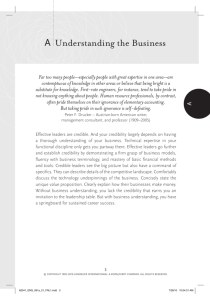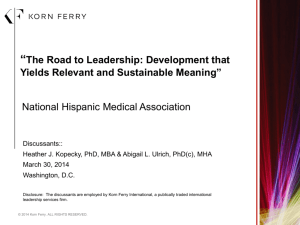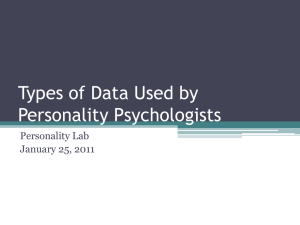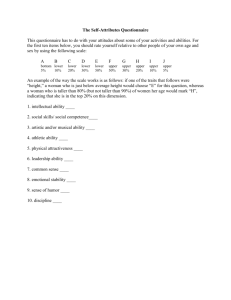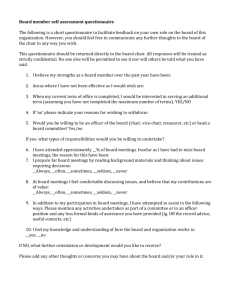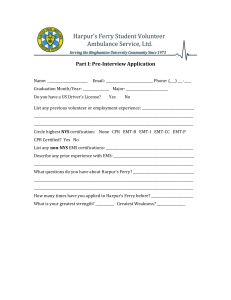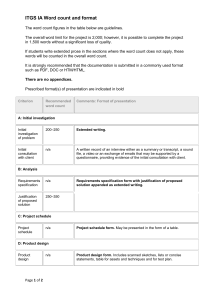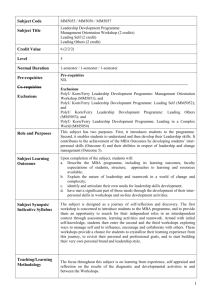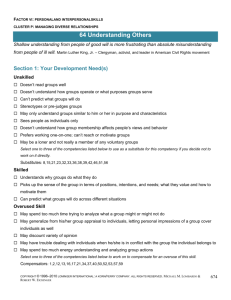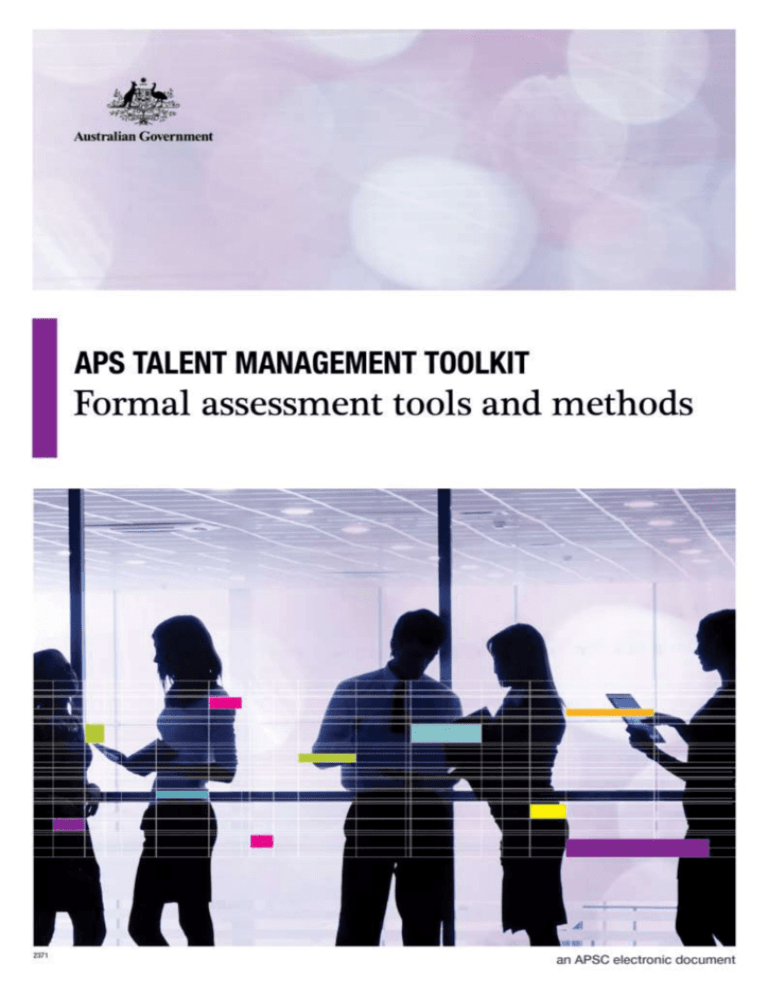
© Commonwealth of Australia January 2015
All material produced by the Australian Public Service Commission (the Commission), constitutes
Commonwealth copyright administered by the Commission. The Commission reserves the right to set out
the terms and conditions for the use of such material.
Apart from any use permitted under the Copyright Act 1968, and those explicitly granted herein, all other
rights are reserved.
Talent Management Toolkit
Formal Assessment Tools and Methods
An initial assessment of an individual’s potential can be made through observation against the qualities,
indicators and behaviours in the APS framework, as set out in the APS framework for high potential . This
assessment is best made by a manager who is working closely with an individual and is able to observe their
behaviours directly and engage with them about their career aspirations.
Formal assessment can be a valuable next step to confirm an initial assessment of high potential and
understand areas for development.
The attached guide to formal assessment methods presents a small sample of assessments available on the
market and is in no way a complete offering.
Screening tools: Online questionnaires completed by a manager and validated with broader stakeholder input –
providing a quick, objective and consistent assessment of candidates.
Detailed assessment: These are done when high selectivity and risk avoidance is required (e.g. Investing in sending
someone on a development program). Detailed assessments are also often done to assist with development
planning where an otherwise high performing individual can get a better sense of where they need to develop to
step into more complex roles.
Ability
Factor
Tools
Factor
Tools
Cognitive
capacity
Screening:
Lominger ‘Voices’ 360 assessment –
Korn Ferry
Learning Agility (manager rating) –
Korn Ferry
Via Edge (self-report) – Korn Ferry
Judgement, Drive, Influencing (JDI) YSC
High Potential Identification
Questionnaire (HPIQ) – People
Measures
Detailed assessment:
Cognitive ability testing (e.g. SHL
verify, Saville aptitude testing)
Behavioural interview
Simulation (e.g. strategic analysis or
presentation)
Screening:
Lominger ‘Voices’ 360 assessment –
Korn Ferry
Learning agility (manager rating) –
Korn Ferry
Via Edge (self-report) – Korn Ferry
JDI model – YSC
HPIQ – People Measures
Detailed assessment:
Personality questionnaire (e.g. Saville
Wave Professional Styles,
Occupational Personality
Questionnaire, Hogan Personality
Inventory)
Behavioural interviews
Simulation (e.g. role play)
Emotional capital report RocheMartin
Adaptability
and learning
orientation
Screening:
Lominger ‘Voices’ 360 assessment – Korn
Ferry
Learning agility (manager rating) – Korn Ferry
Via Edge (self-report) – Korn Ferry
HPIQ – People Measures
Detailed assessment:
Behavioural interview
Personality questionnaire
Propensity to
lead
Screening:
JDI model – YSC
HPIQ – People Measures
Detailed assessment:
Behavioural interview
Personality questionnaire
Emotional
intelligence
Aspiration
Engagement
Factor
Tools
Factor
Tools
Motivation
Detailed assessment:
Behavioural interview
Personality Questionnaires (e.g.
Saville Wave Professional Styles,
Occupational Personality
Questionnaire, Hogan Personality
Inventory)
Alignment
with APS
culture and
values
Detailed assessment:
Bespoke values questionnaire
Bespoke manager rating questionnaire
Interview
Career
aspiration
Detailed assessment:
Bespoke career aspiration
questionnaire (possibly administered
online)
Interview on career aspirations
Environmenta
l fit
Detailed assessment:
Bespoke environmental fit questionnaire
Interview
Glossary of Methods:
Behavioural Interview: A behavioural interview is focused on discovering how an individual acted in specific
employment-related situations. This uses past performance in the workplace to predict future performance. Instead
of asking how an individual ‘would’ behave, the interviewer will ask how they ‘did’ behave.
Personality Questionnaire: A standardized series of questions or tasks, used to describe or evaluate a subject's
personality characteristics. Questionnaires typically focus on describing a person’s preferred or typical style of
operating compared to a large group. It is an effective way of identifying where people direct their energy and
attention in work situations.
Bespoke Questionnaires: These are questionnaires written or adapted for a specific user or purpose. They may
contain some “off the shelf” or standardised content. However their main purpose is to ask questions which are
particularly relevant to the APS and the agency needs or context.
Simulation exercise: A simulation exercise gives people the opportunity to demonstrate their skills in a simulated
environment which approximates the real world in which they would do the work. The classic simulation is an
orchestra audition whereby a player is invited to perform for the panel so that their skills can be observed and
evaluated. In work settings, the most common simulations that are used are analysis and presentation exercises and
role plays. In an analysis and presentation exercise, people will be given a file or brief to read through which provides
a broad problem and some data to analyse. They are then invited to present their recommendations to a panel
acting as a board or client of some sort. Through this people can demonstrate the depth and quality of their thinking
(e.g. strategic or analytical), their presentation skills and their ability to think on their feet when asked questions.



